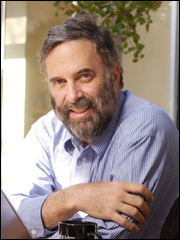New Orleans Catching up on news I had missed, a picture a couple of weeks ago in the Times caught my eye because it seemed to involve the Roma (formally gypsies) and how they should fit into the society of Bulgaria where they constitute more than 10% of the population. When the Organizers’ Forum (www.organizersforum.org) delegation visited Turkey last year, we spent time in a Roma area in Istanbul on the Asian side and received an introduction to the issues at a deeper level.
This seemed to be a “horse of another color” though. There seems to have been a meeting recently of 255 people, selected supposedly at random, to hunker down for a day of so-called “intense democracy” in trying to decide how to create a new path through this tricky problem in Bulgaria. The scheme was called “deliberative polling” and was constructed by a Stanford University professor, James Fishkin. It seemed to have involved an initial survey poll of 1344 people from the general population and focused on issues involving the Roma around housing, education, and crime. From this “random” sample (I have no idea how either group was really selected, so cross your fingers and hope for the best here) the group was sweated down to 255 who were going to go face-to-fact last April. They then were inundated with materials and proposals from the government, NGOs, and political parties — or whomever I suppose the government sponsors and the professor thought appropriate (big questions there, too).
For two days they debated among themselves in small groups after hearing competing voices speak to them (the picture in the Times has them in careful rows looking intently to the learned experts). After shaking and baking through this “deliberative” process, they were re-polled. Nicholas Wood, the reporter, wrote that there were some shifts in opinions, most of which seemed to indicate that there was movement towards the middle from the extremes. The Prime Minister Sergei Stanishev was happy with the results in no small part because it indicated a higher “level of tolerance” than some of the more divisive political rhetoric in the public forum.
Is this a more clear expression of democracy? Frankly, I doubt it, and only partly because of unanswered questions about imbedded biases in the work. Having watched close at hand some of the fabrications of “public input” in the New Orleans planning process, one can easily see the way voices and groups that are compatible to preconceived outcomes are privileged, while independent — and organized — voices are discounted and eroded. Wood remarks on the bias that moved the argument to the more gifted speakers in the “deliberative polling” process, and the fact that the formality of the process moved people away from root prejudices (always a good thing!), and that hardly leads to a more perfect democracy.
At the end of the day “deliberative polling” should simply be seen as no more than it is, a way to direct and impact on initial points of view through a deliberative process. It is reasonable to always believe that information will impact positions that are previously only educated by limited information, conflict, or prejudice, but why make dangerous claims that information and data tools can be a substitute for the messy mayhem of real democracy, when and where it is allowed to flourish? It may not be pretty, but it’s still real, and it still works when it is allowed to do so. I suspect even in Bulgaria this state sponsored event will simply be a hammer swung at anything that looks like a nail in the debate about improving the lives of the Roma in that country. Ends and means all work out fine here, but democracy is a different thing, so we should not be confused about that.
